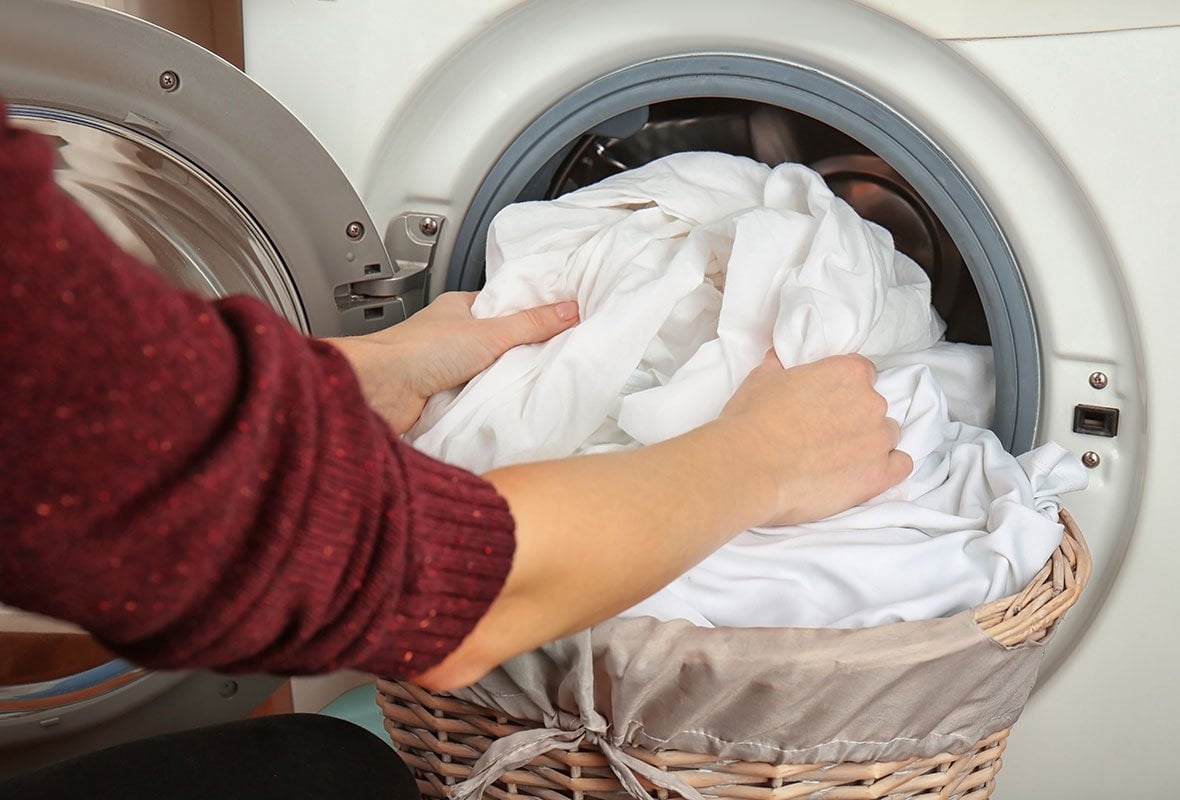Bed sheets are like your closest friend. They are always attentive to your sleep and comfort. But are you treating your best pals properly? Do a quick recall. How long has it been since you brought your bedsheets to the washing machine? Are you getting into the habit of letting your bedding filthy for longer than a week? Well, we have some bad news for you. In fact, neglecting to clean your sheets can lead to a variety of skin issues.
Life is hectic these days. Especially, when you are a grown-up, you have to cope with all sorts of business in a single day. And at the end of the day, all you want to do is call it a night and rest comfortably in your bed to watch one or two Netflix series or gently drift into a sweet dream. Suddenly, something itches your skin in the middle of the night, annoyingly waking you up. In your pondering, you realize that you haven’t cleaned your sheets in weeks. Is this the cause of the itching you noticed while sleeping earlier? Let Illume explain to you how unclean bedsheets can affect your skin.
Itchy scalp
Have you ever puzzled why your head is still itching after you’ve bathed and gone to bed? Damp and filthy sheets, on the other hand, are ideal breeding grounds for bacteria and fungi that cause skin fungus. These fungi produce acne and rashes on the scalp, causing us to scratch like a circus monkey. To alleviate this pain, clean your bedding and pillows regularly and thoroughly dry your hair before going to bed.
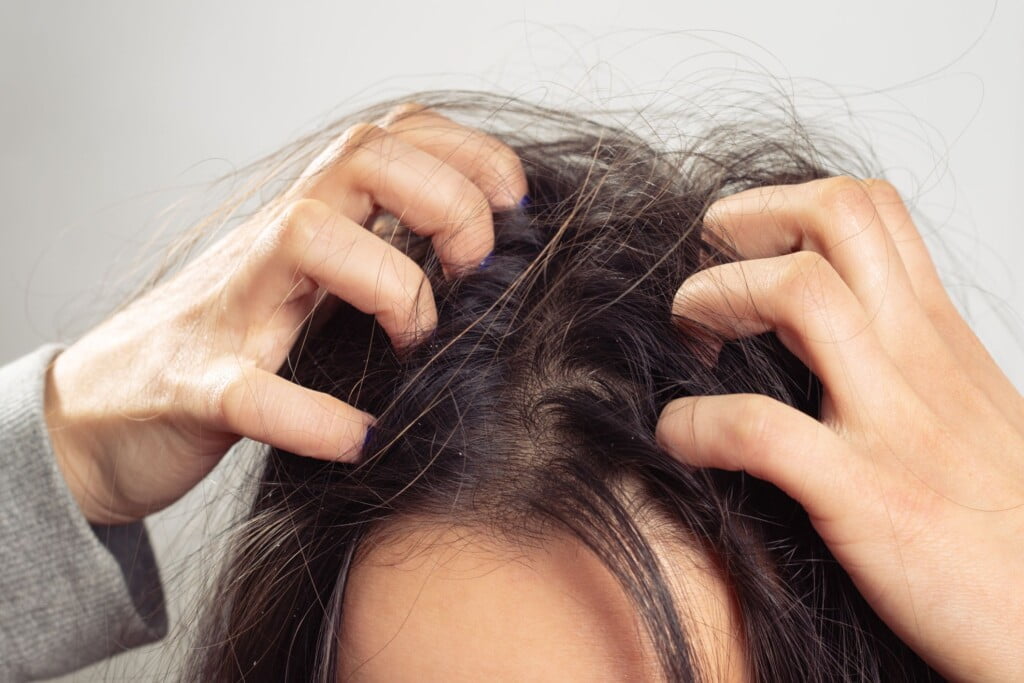
Pinkeye
Pinkeye, also known as conjunctivitis, is described by redness and inflammation of the clear membranes that cover the whites of the eyes as well as the membranes on the inner part of the eyelids.
If you have pinkeye, unclean pillows and sheets could be the source of your problem. All you need after a long day is a good night’s sleep. But then, as you try to close your eyes and fall into sleep, something keeps itching in your eyes. You rub your eyes as hard as you can to attempt to get it out. You eventually realize that you have pinkeye. So, is it your fault that you rubbed your eyes from the beginning? Partially. However, it is mainly due to your neglect to clean your sheets.
If you or anybody in your bed has recently had conjunctivitis, wash your bedding in hot water to reduce the possibility of reinfection.
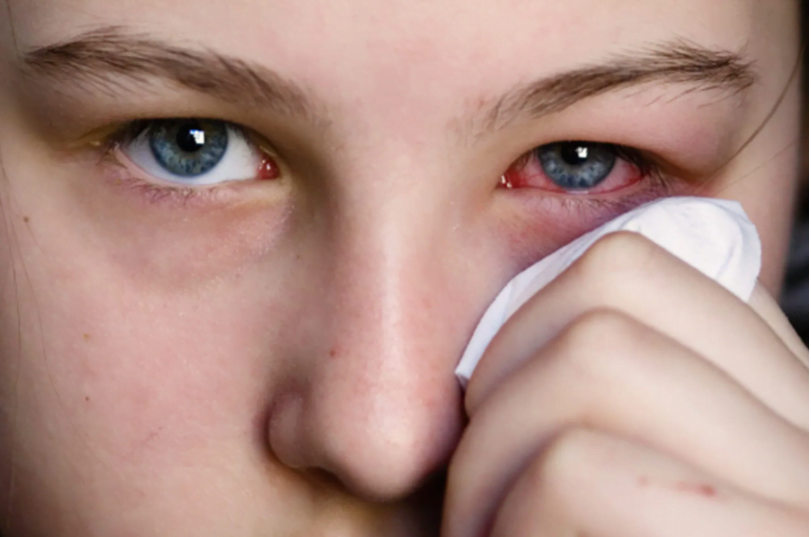
Irritation and pimples
“In addition to attracting bacteria, dirty sheets rub against your skin while you sleep — and that friction can lead to skin irritation“, explains Dr. Joshua Zeichner, a dermatologist in New York. Certain people have skin problems; therefore, they apply skin creams on their faces before going to bed. Self-treatment with fatty ointments or heavy lotions can actually exacerbate the problem since they are harder to absorb and can spread to your bedding, where they will linger even longer, exposing you to more bacteria.
Dirty pillowcases and bedsheets are another source of skin outbreaks. Demodex mites are bugs that can cause skin irritation and rashes and can be found in bed linens and pillows. To prevent pimples and irritation, dermatologists recommend replacing pillowcases every 2-3 days and bedsheets weekly.
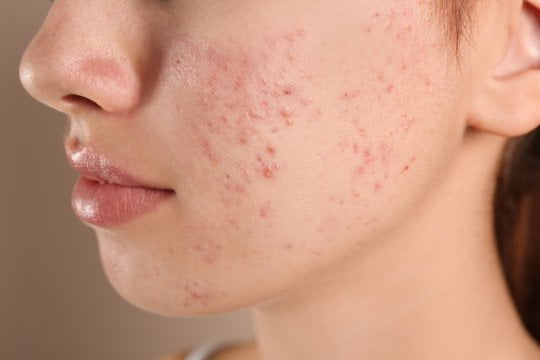
Infection and skin fungus
Blankets, sheets, and pillows serve as safe havens for dirt and bacteria that accumulate in the air and on the body. In the long term, if not replaced and washed regularly, the number of bacteria would grow and easily cause sickness. Furthermore, insecure sheets and pillows can contain a variety of harmful substances to the body such as bleach, dye…
When these dirty, harmful substances, or bacteria come into touch with the body, they cause mold formation, which leads to diseases including fungal skin diseases, blisters, dermatitis, sores, infections, and chronic urticaria.
A research conducted by the mattress firm Amerisleep showed the terrifying statistic that sheets left unwashed for even one week had 24,631 more bacteria than a bathroom doorknob. Personally, I’m thinking of tossing all of my sheets in the washing machine after finishing this article.
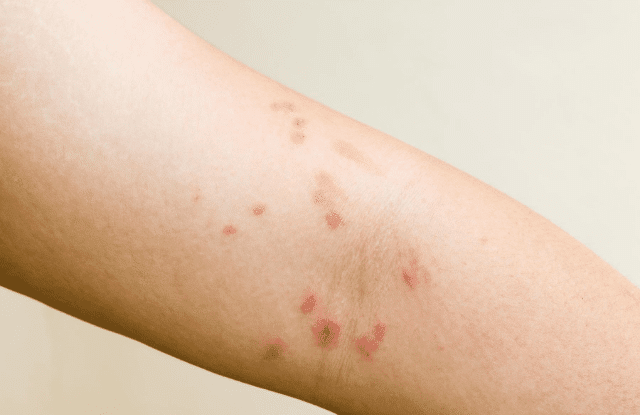
Dust mite allergy
You may have an allergy if you often sneeze and have itchy eyes at night. Allergies can be caused by anything from pollen and dust to bed sheet dust mites. These dust mites are absolutely minuscule, but they can cause severe cases of allergies and asthma.
The dust mites are relatives of the spider family. Generally, they feast on skin flakes that we shed while sleeping and gather in any area that does not get cleaned regularly. These pesky creatures are responsible for welts on your neck, face, arms, and upper torso. Moreover, they can induce difficult-to-treat respiratory issues.
To avoid these allergens, wash your sheets in hot water once a week and vacuum your bedding frequently.
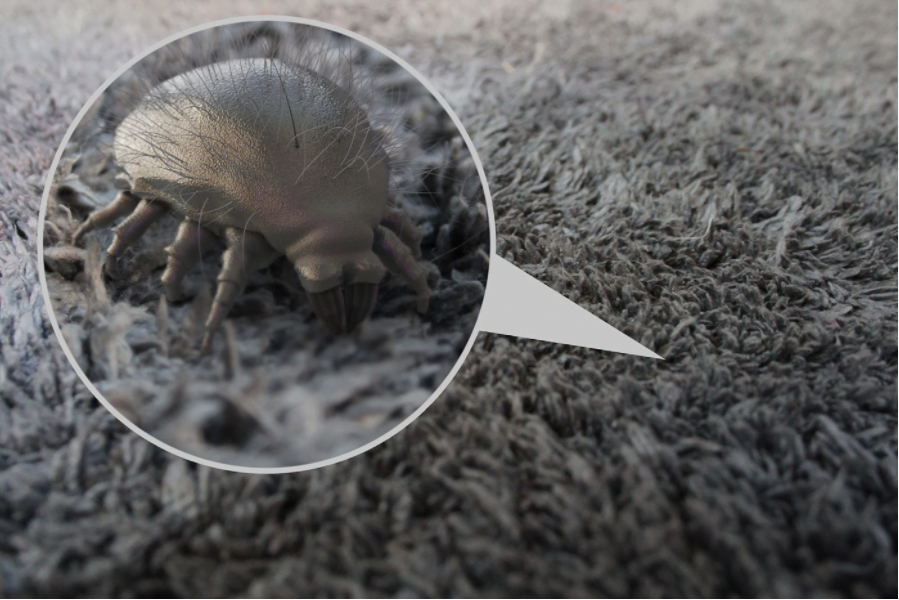
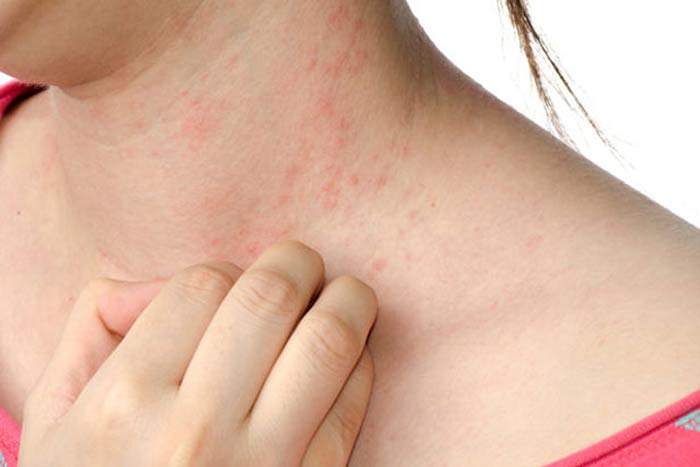
Solution:
– Wash and replace blankets, sheets, and pillows at least once a week. Summer heat causes bacteria to grow stronger and our bodies to secrete more than usual.
– Clean bedding and pillows with a mini vacuum cleaner every day.
– When washing blankets and sheets, especially pillowcases, use antibacterial soap and dry in the sun.
– If there are symptoms of allergies or respiratory diseases, it is necessary to change blankets, sheets, and pillows and to visit a doctor as soon as possible so that the problem will not get worse.
